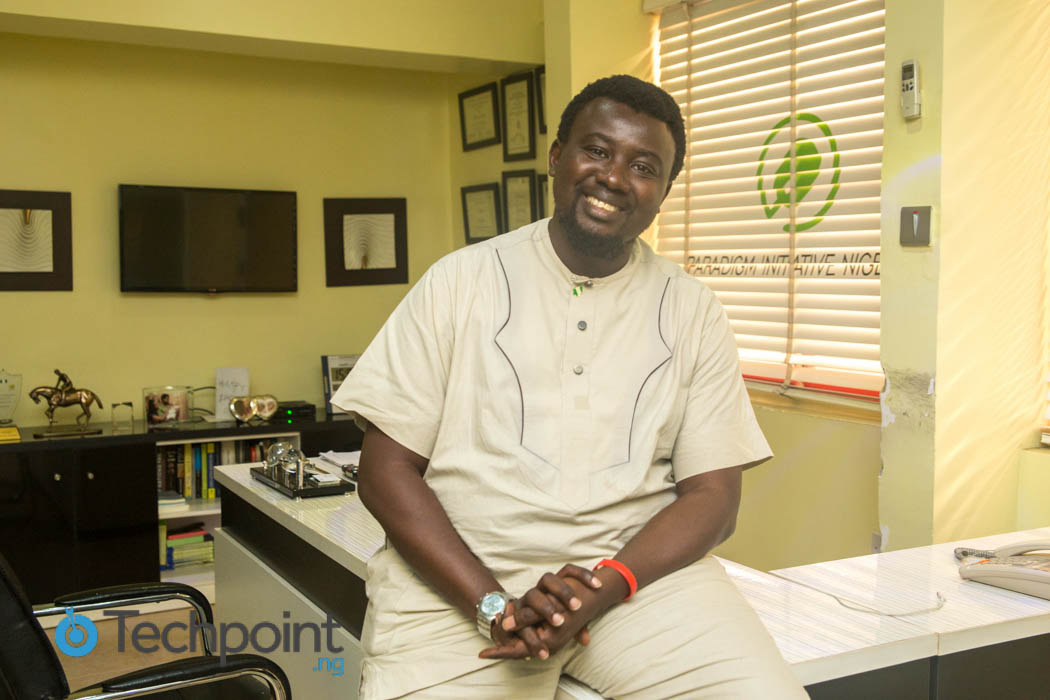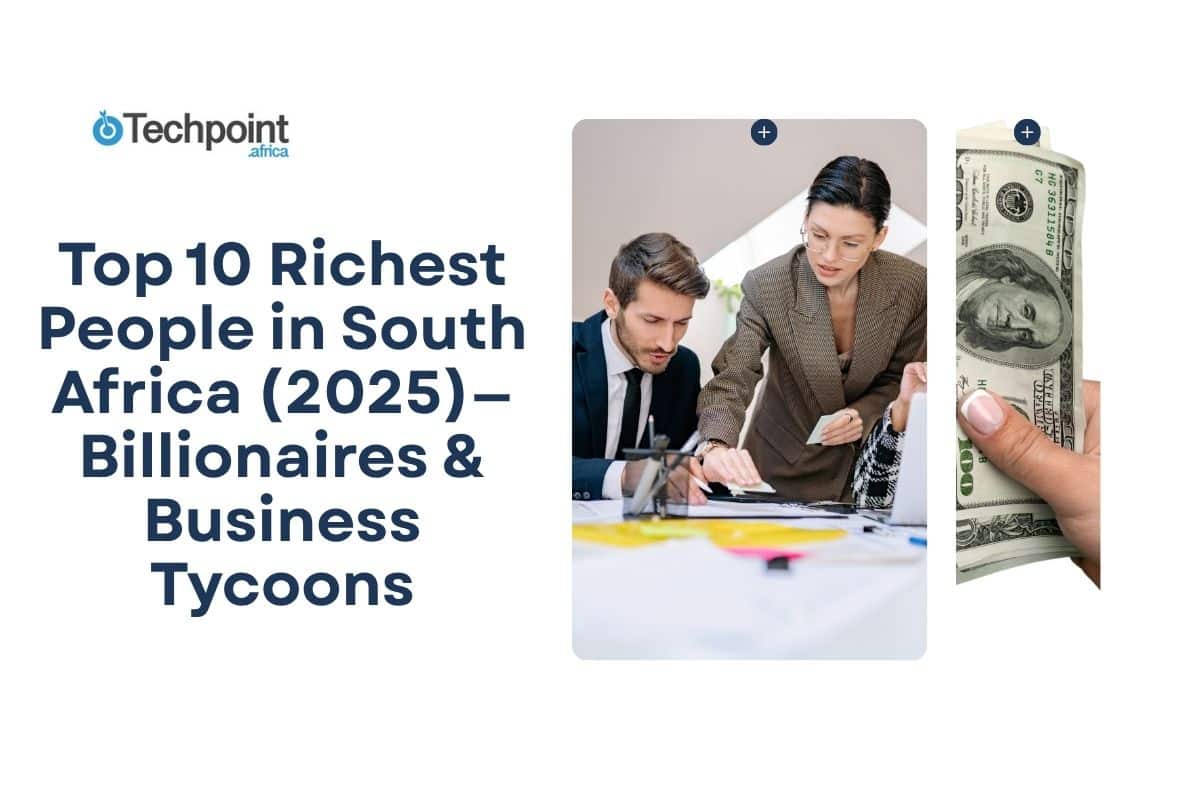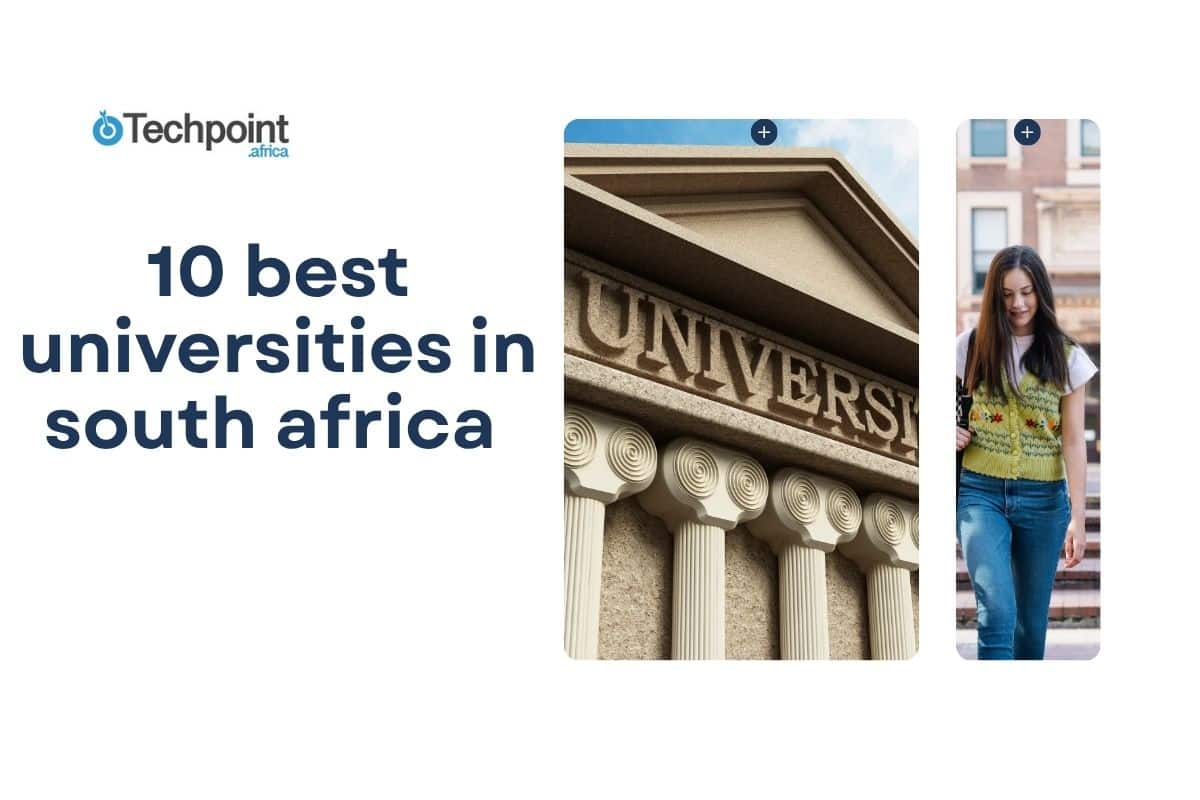For the initiated, Gbenga Sesan almost needs no introduction. He is the founder and CEO of Paradigm Initiative Nigeria (PIN), a social enterprise focused on digital rights and inclusion for disadvantaged Nigerian youths familiar with opportunities in technology.
With a career spanning over two decades, Gbenga Sesan has consistently been one of the most prominent ICT advocates in Nigeria.
Techpoint spent an afternoon with Sesan at the PIN office in Yaba, Lagos, where he shared his “origin story” and his plans for the future.
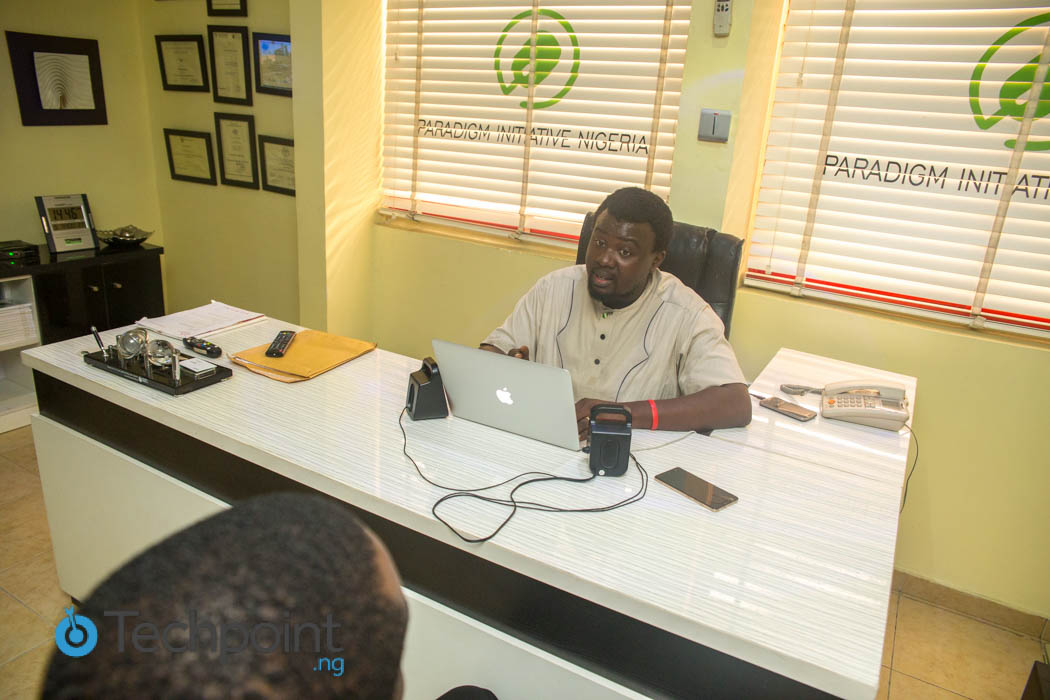
Muyiwa Matuluko of Techpoint.ng: I took a glance at your resume before I came here. You attended quite an interesting number of Ivy League institutions. What was the motivation for that?
Gbenga Sesan of Paradigm Initiative Nigeria: Many of the schools were not attended full-time. They were mostly executive education. That was borne out of two things. First was an interest in the best practical education possible in my areas of interest.
The second reason was because I failed at ‘Ife’ (OAU). I had an extra semester and came out with a Second Class Lower. So in conversations with most of my mentors, the focus was often on how I was a first class brain who didn’t make a First Class. I needed to know what I had to do to make that conversation never come up again. Someone jokingly remarked that if I went to Harvard or Stanford, everyone would forget about Ife. I took it seriously.
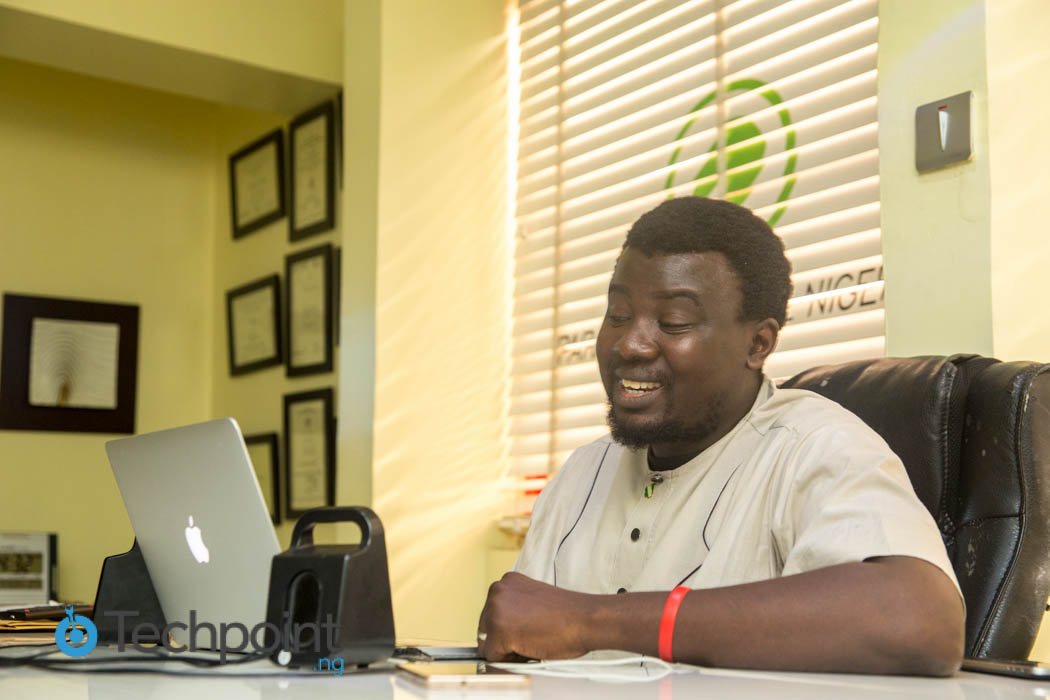
My area of interest at the time was leadership and my first opportunity came through the Archbishop Desmond Tutu fellowship, which saw me through a leadership course at Oxford University. Another of my interests was social entrepreneurship. I wanted to understand it, not as a local champion but, from the platform of those who had done this for years. At the time, there were only two places where that could be done — Stanford and Harvard.
I was able to go on these platforms with my contextual understanding of Nigeria and other African countries and hear from other people. That helped me to become globally exposed and locally relevant.
MM: What inspired your passion for training young Nigerians to empower themselves through ICT skills?
GS: It’s a combination of things. Two computers were donated to my school during my third year in secondary school. This was in 1991 when computers were a big deal anywhere, especially in Nigeria. The first day I visited the computer room, the teacher smugly declared that computers weren’t for people like me. That became a trigger for me. I saw it as a challenge and I made up my mind that no other young person would go through the same embarrassment that I did.
During my fourth year at the university, I came to Lagos where I spent 6 months for my Industrial Training with a company called Neural Technologies Limited. Working there further strengthened my resolve to train young people. So when I returned to school, I started something called WPD 2000 — Web Page Design. I had learnt how to use HTML so I taught that. I made them pay for it because the idea was to train about 6 to 12 people, who could then train others.

After I left school, I decided I was going to work with a non-profit for one year. That’s how I joined Junior Achievement of Nigeria. Eventually, one year became two years, which became three and eventually six. I also worked on the Lagos Digital Village project with Microsoft, Junior Achievement and the Lagos state government. That was the foundation for the kind of stuff I do today with PIN today.
So to answer your question, it’s a combination of the trigger that I had in secondary school, the kind of opportunities I had while I was in campus, and seeing the gaps that existed.
MM: Looking at your work history, you spent most of your career working for NGOs and social enterprises. These aren’t very popular choices for young people trying to build their lives. Was this deliberate?
GS: To be honest, it was primarily accidental. I was very ambitious. I honestly I saw a gap and I wanted to build a niche filling the gap. Filling the gap meant I couldn’t go after making money. It also meant doing something bigger than myself.
I just knew deep within me that I wouldn’t suffer to pay my bills. The people who pioneered the things that we use to make money right now were not focused on the money. They were focused on delivering value. And in delivering value they achieved two things — wealth and legacy.
I read a lot and I realised that a lot of people that I respect are not exactly people who are measured by Forbes. My early exposure was to people like Wole Soyinka, Philip Emeagwali and Pat Utomi. These people are not poor by any standards. Philip Emegwali , I think was my biggest influence at the time. He was talked about all across the world, not in terms of his wealth, but in terms of his impact. These are the kind of influences I had.
I realised early enough that money is never a good destination. Granted, it’s terrible not be able to pay your bills; you could die of frustration. However, the ability to pay bills, be comfortable and achieve a legacy while at it, I’ll take that any day over chasing money.
MM: It’s admirable that you had such a resolve early in your life but, I don’t imagine your parents took it very well, you being a brilliant student with a lot of promise and all.
GS: This is one of the reasons I always say people need start early. I broke away from the grip of home very early. When I turned 18, I went into the kitchen to meet my mum, my dad was there, and I told them, “listen, now that I am 18, I make my decisions, I do what I want to do”.
They laughed at me. They thought I was reading too much and watching too many movies. You need to understand that my parents were very strict. My dad is a retired teacher while my mum is a retired nurse; they were strict to the core. But then, I was a serious student. When your child comes home always winning the awards, you kind of listen to the child. So I already won their confidence. I remember when I failed at Ife my father said to me, “you didn’t fail; Ife failed and they will apologise to you”.
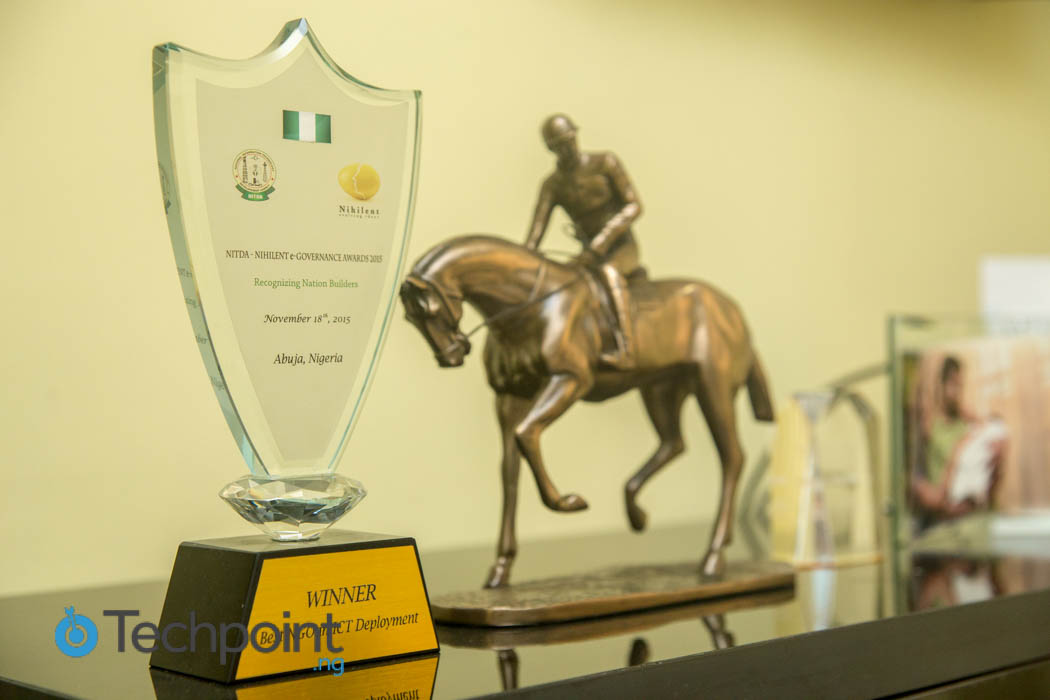
I didn’t understand what he meant at the time. Many years later, Ife literally apologised to me; something about the senate sitting on my result and delayed compliations. But it was already too late. I had moved on.
MM: At the time you started PIN in 2007, it was an ambitious project by many standards. I imagine it was very tough starting up.
GS: It wasn’t so tough in terms of the dream. The difficult parts were first convincing myself that training these young people in this particular area would help them achieve the kind of things that I was on the path to achieve. And that could only be found out by doing it.
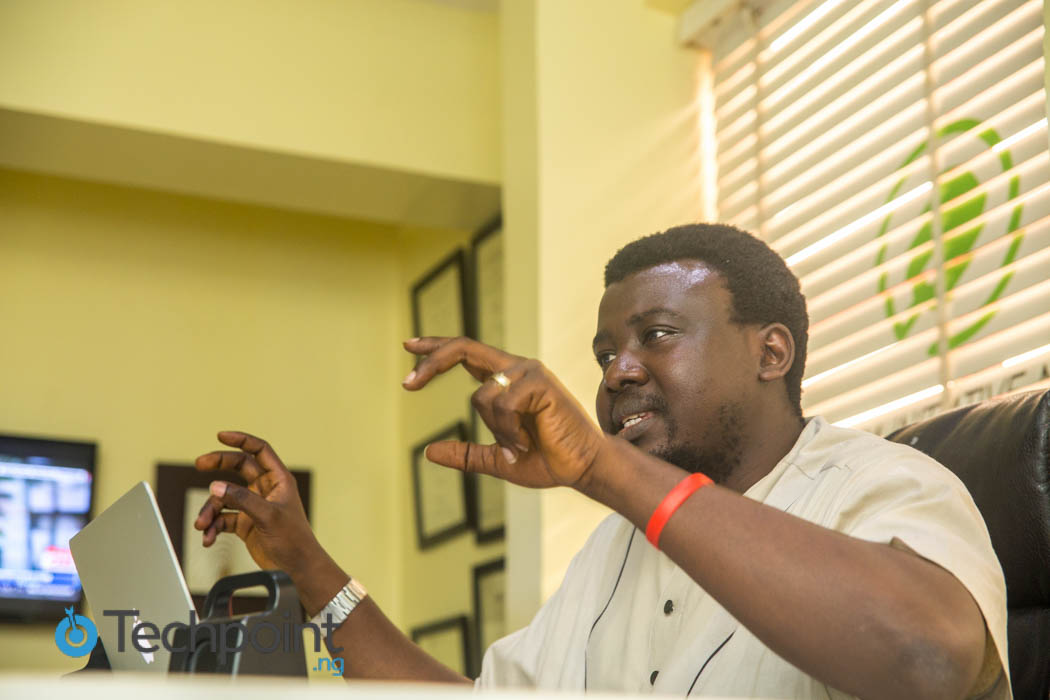
It was also difficult putting resources together. I started off with about $4000 in savings, which I assumed would last long. Of course, it didn’t last long. The good thing is that I was able to prove that I could do so much with my money that others were soon able to trust me with theirs.
There was also the challenge of scaling. The good thing is we surmounted all these challenges and almost 10 years later, we’re still here.
I should make it known that, by the end of next year, I’ll be leaving PIN to hand over to someone else. I am not one of the founders that believes in perpetual CEO positions. Don’t get me wrong, I have nothing against anyone who’s running their project for 50 years. I just personally think that 10 years is enough for me to become jaded. Long enough for me to attract a fresher mind who is as crazy as I was in 2007, or even more crazy.
MM: So what’s next for you?
GS: The next thing for me is policy. Like I said a few days ago on Twitter that there have been three phases of my life so far.
The first phase was in terms of opportunity for young people generally. This was my focus from 1996 to 2006. Those were the times that I and my friends would gate-crash government conferences on ICTs just to get young people in the room.
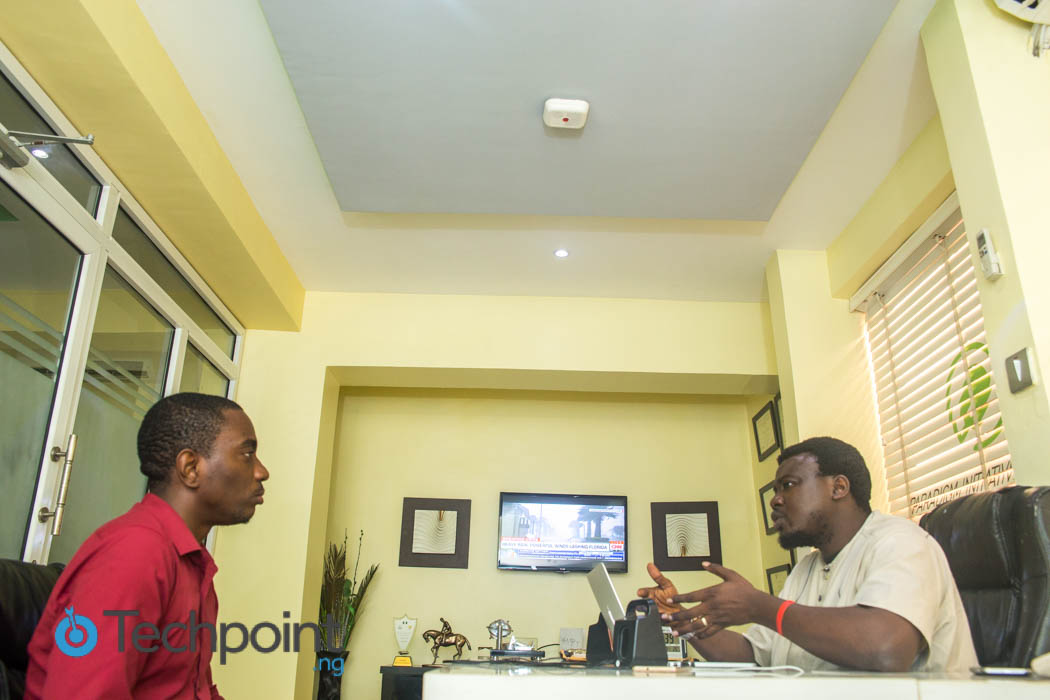
2006 to 2016/2017 has been focused on capacity building. But from January 1, 2018, the focus will be strictly on a narrow area of policy. I’m looking at digital rights in terms of internet freedom and making sure that every young person who is innovative on the internet does not have to be scared that someone is coming to pick them up for doing something wrong.
MM: What’s the hardest thing you have had to learn to get to where you are?
GS: The hardest thing I’ve had to learn is to be invisible. The early part of my career had me standing in front speaking for young people. The capacity building phase of my career had me building a team. PIN has its offices in five locations across Nigeria but I am still the face of it. So the next phase for me is to step back. It’s difficult when you’ve been celebrated, given awards and are seen as “the guy”. It’s very difficult for you to learn to step back and allow someone else take the credit. I think that’s been the most difficult thing for me to learn.
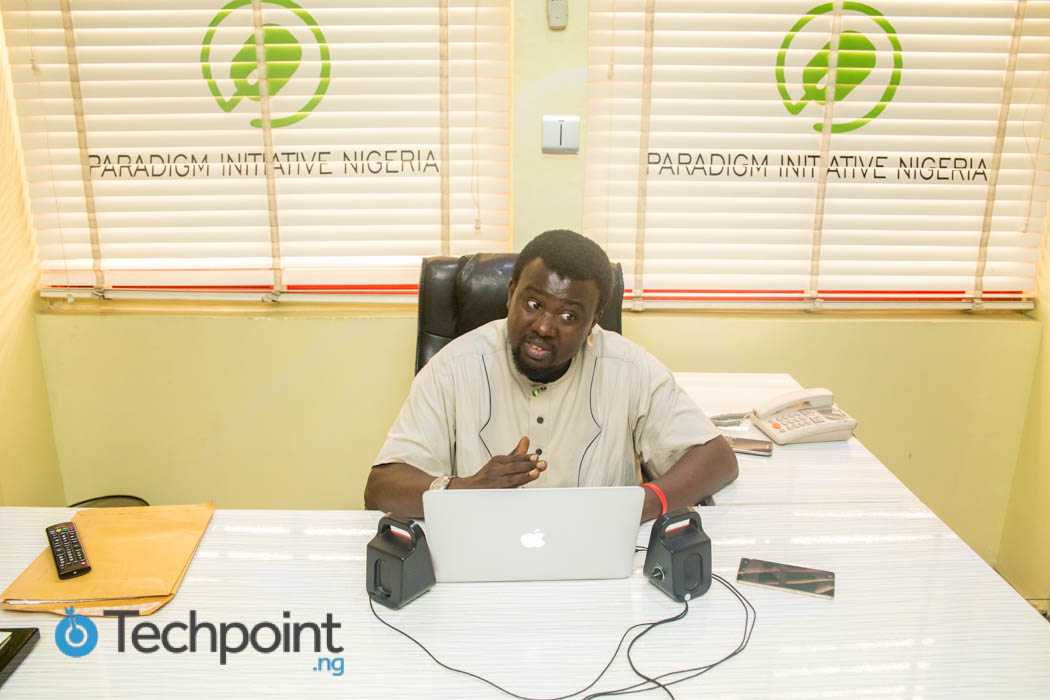
MM: Based on your experience with PIN, what would you say is most lacking in ICT education in Nigeria and how can we address it?
I think the biggest problem is the disconnect between the classroom and the workplace. What our engineering and science students are learning has nothing to do with the application in the industry. I think it’s a big problem. We should be training people not to find jobs but to solve problems. This one of the reasons I’m pouring myself into our T.E.N.T program, particularly scaling it up in terms of what we’re going to be doing with schools next year.
MM: Do you have any advice for young people looking empower themselves through ICTs?
GS: Three simple things. One is foresight. Maybe because of the power of hindsight for me now, I am glad that I made those decisions I made early enough. When you start early and are consistent you’re able to see the opportunity to define what you want to be as an expert.
The other thing is ownership. We are a generation of excuse givers. Everybody has somebody else to blame. Right now I could blame PHCN for not giving me power so I can’t work. But excuse me, there’s something called a generator that should kick in.
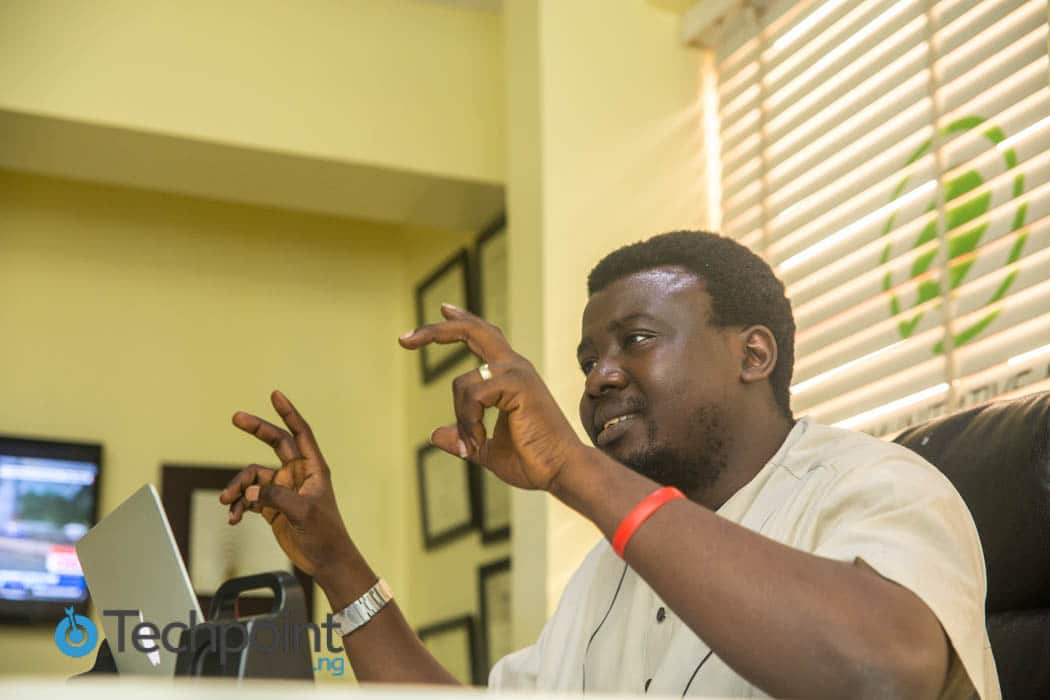
You hear people say things like “I wish I went to the right school. If I had gone to the right school, maybe I would have achieved something”. Everybody has an excuse. Dangote Aliko, Pat Utomi and Wole Soyinka all had an excuse, yet they’re high achievers. In a country where government policy is not exactly very helpful, you need to own your life and be able to find out what technology tools of the time you can leverage.
People say unemployment is on the rise. I say there’s nowhere in the world that you will know how to program, even in one language, and be unemployed.
The last thing I’ll say to everyone young person in technology is to please take the initiative. We seem to wait for things to go wrong before taking action. We seem to wait for others to take the initiative. I get people tweeting at me all time on something we need to do about Nigeria. My reply is always the same; start and we’ll follow you. Just start it. Who knows, maybe you’ll become a success at it and one day when you visit Yaba and you’re walking from CcHub to Andela the whole world will focus their attention on you.

